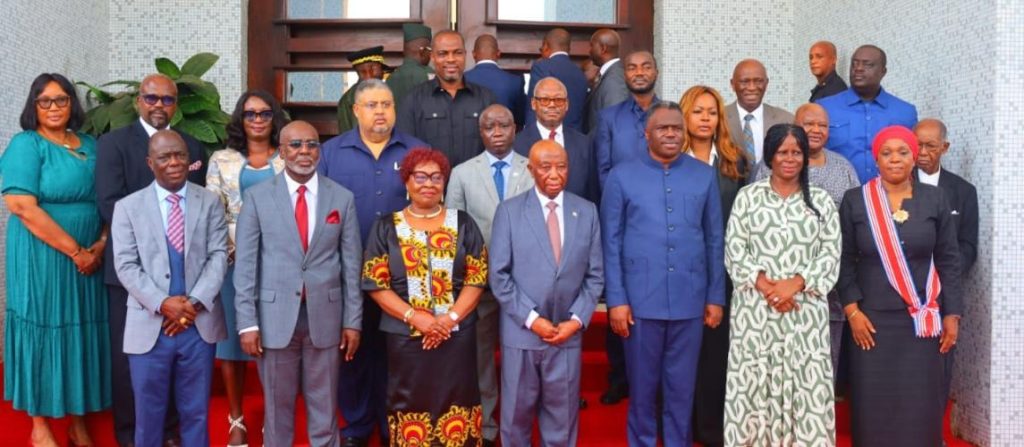In the wake of the Liberian presidential election in 2023, Joseph Nyumah Boakai, the former Vice President, launched his campaign under the banner of the “Rescue Mission,” with promises to liberate the nation from corruption and inefficiency. Boakai’s vision resonated widely among citizens who anticipated a renewed commitment to transparency, economic progress, and long-overdue reforms. However, less than a year into his administration, the reality within his government has raised serious concerns about the integrity of the so-called “Rescue Team.” Reports have surfaced of administrative dismissals, forced resignations, and suspensions among several high-ranking officials tied to misconduct, casting doubt on the administration’s commitment to its initial promises.
Notably, a significant incident triggered public outrage when Boakai suspended three senior officials from the Liberia Refugee Repatriation and Resettlement Commission (LRRRC) amid allegations of financial impropriety. The officials, including Executive Director Patrick Worzie and his deputies, were implicated in questionable financial transactions that allegedly deprived returning refugees of essential resources. Additionally, the President announced the dismissal of Colonel Abraham Kromah and his deputies from the Liberia Drug Enforcement Agency (LDEA) due to allegations regarding misuse of funds related to the drug trade. These situations have raised eyebrows, as they starkly contrast with the accountability and integrity that voters expected from the Boakai administration.
More troubling still is the scandal involving former Commerce Minister Amin Modad, who, along with Liberia Revenue Authority Commissioner Dorbor Jallah, has been accused of violating budget laws to satisfy personal luxury tastes. Reports circulated about Modad purchasing a luxury SUV at a staggering price of $150,000, with conflicting statements issued by government entities regarding the legitimacy of the transaction. This revelation further complicates the image of the Boakai administration as a beacon of reform, as it suggests that current officials may prioritize personal gain over the well-being of the very citizens they vowed to serve.
As the President takes action against some officials accused of corruption, there are mixed views on whether he maintains full control over his administration. Boakai’s willingness to suspend officials in response to burgeoning scandals shows a commitment to accountability, and it contrasts favorably with the responses of previous administrations during similar periods. However, there is a pervasive sense of skepticism among the public regarding the overall integrity of the current government. Many citizens wonder if these disciplinary actions indicate a genuine effort to implement change or if they merely represent a superficial response to scrutiny.
The ongoing developments suggest deeper issues within the “Rescue Mission,” as questions arise about the administration’s capacity to manage its personnel effectively and uphold the public trust. Despite Boakai’s apparent resolve to address corruption, signs of maladministration and potential self-serving behavior among officials could diminish faith in the new regime. The disparity between promises made during the election and actions taken since raises critical issues about the underlying motivations of those in power—whether they truly seek to “rescue” Liberia or merely seek to insulate themselves from the socioeconomic challenges that plagued the previous government.
As these events unfold, the citizens of Liberia are left grappling with uncertainty. The narrative of a restoration of integrity and effectiveness in governance is at risk, and the long-term implications of this administration may hinge upon its ability to deliver on its foundational promises. Transparency, accountability, and ethical leadership will be paramount if the Boakai administration is to restore trust in public institutions. The journey toward true reform must address not only the immediate concerns surrounding personnel misconduct but also cultivate a political culture that prioritizes the nation’s needs over individual greed. In a nation yearning for stability and growth, the effectiveness of the “Rescue Mission” will ultimately be evaluated by its true dedication to the people of Liberia and its capability to act against the entrenched corruption that has long stifled its potential.














